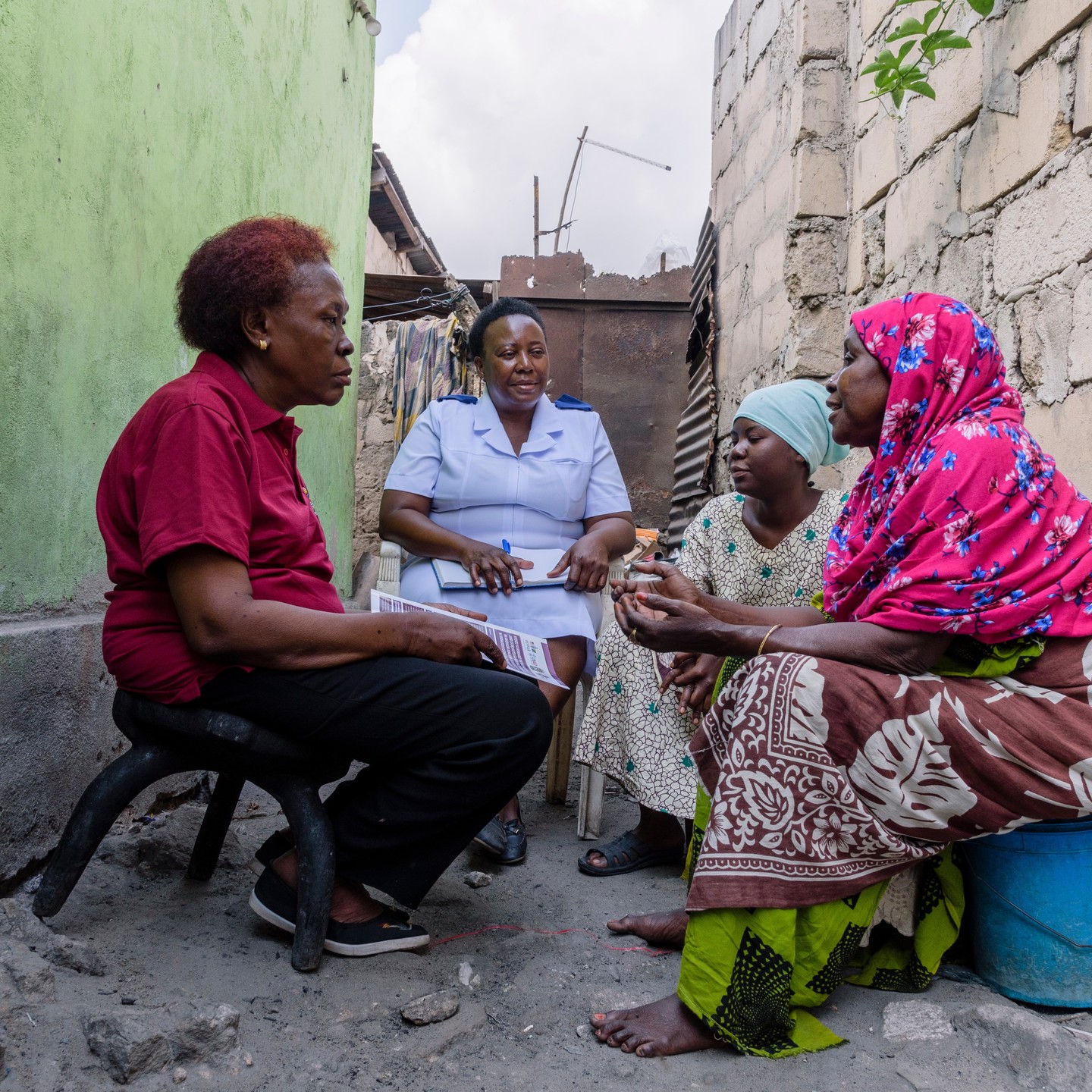Photo of Hadija, a community health worker, and Upendo, a nurse, who travel from house to house to conduct clinical visits in Mozambique as part of PEPFAR’s work to support orphans and vulnerable children by USAID Global Health.
Africa: PEPFAR Cuts Could Kill Half a Million Children
U.S. foreign aid cuts threaten to turn back global HIV/AIDS progress to the dark ages of the epidemic, researchers say in The Lancet.
The reduction or elimination of funding from the US President’s Emergency Plan for AIDS Relief (PEPFAR) could lead to the deaths of nearly 500,000 children in sub-Saharan Africa from AIDS-related causes in the next 5 years, according to an expert policy analysis published in The Lancet on April 8.
Models also predict that another 1 million children will become infected with HIV, and 2.8 million will be orphaned after their parents die of AIDS, the University of Oxford–led research team said. PEPFAR has distributed $6.5 billion to fight HIV in 50 countries around the world each year and has been credited with saving more than 26 million lives since it began in 2003.
On Jan. 20, President Trump signed an executive order freezing all foreign aid for 90 days pending a review, disrupting HIV and AIDS care at more than 70,000 PEPFAR funded programs in 50 countries. In mid-February, many of these programs were advised to apply for a limited waiver of the freeze by submitting a reduced work plan limiting HIV prevention care to mothers and pregnant women only and confirming that they will not conduct any “gender ideology or diversity, equity and inclusion (DEI) programs.” No definitions of these broad terms were provided.
On Feb. 13, about a third of PEPFAR-funded programs received surprising news — their funding was fully restored without the need for a waiver due to the fact that their funds are managed at the CDC, which sits in the Department of Health and Human Services, not USAID. Then, according to the New York Times, on or around Apr. 1, the Trump administration fired or reassigned to other projects the few remaining people authorized to use the payment system at the CDC. “Everyone is scrambling now to figure out how to pay country teams and partners,” an anonymous CDC official told the New York Times. As of this writing, it is unclear if the CDC will issue payments in May.
In a news release about the policy analysis published by The Lancet, co-leading author Lucie Cluver, PhD, of the University of Oxford, said an abrupt withdrawal of funding for PEPFAR programs would turn back global HIV/AIDS progress to the “dark ages” of the epidemic.
“A sudden withdrawal of PEPFAR programmes, especially in the absence of a long term strategy to replace them, could lead to a resurgence of HIV infections and preventable deaths, and a dramatic rise in the number of children orphaned by AIDS in the coming years — a setback that could erode two decades of progress,” she said.
The benefits of PEPFAR aren’t limited to African countries, the researchers concluded. PEPFAR improves health and national security around the world by reducing forced migration and increasing the odds of containing infectious diseases.
The authors of the paper noted that PEPFAR also benefits the U.S. economy, with a fourfold rise in U.S. export to Africa and $71.6 billion in trade between the United States and Africa in 2024. In addition, African countries with PEPFAR-funded programs have committed to taking responsibility for HIV/AIDS services by 2030. The researchers called for the United States and African nations to work together on a five-year plan to transition funding responsibility from the United States to domestic public-private partnership in Africa while maintaining progress toward ending AIDS in the next decade.
Eleven senior African health officials signed a letter, published alongside the research paper in The Lancet, which described the feasibility of a five-year transition plan. Their letter highlights the World Bank Development Indicators that show African nations assuming responsibility for HIV/AIDS programs, with a 212 percent increase of in-country financial contributions to healthcare in nearly all PEPFAR supported countries, from $13.7 billion in 2004 to $42.6 billion in 2021.
At his swearing in on Jan. 21, Secretary of State Marco Rubio stated that every action taken by the State Department would be determined by the answers to three questions: “Does it make us stronger? Does it make us safer? And does it make us more prosperous?” In their letter, the African leaders responded to those questions: “Together, we can end this fight and finish well, making not just the USA and Africa, but indeed the world, safer, stronger, and more prosperous.”
Faith in action: Tell Congress to urge the administration to reverse terminations of lifesaving aid, and maintain funding: https://mogc.me/usaid

